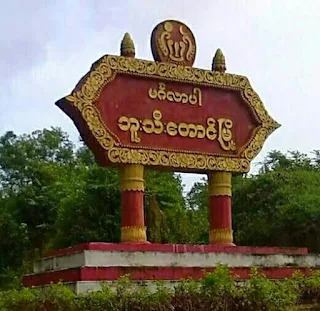Challenges of UN Security Council on Rakhine Crisis; Need Tougher Stand
 |
| UN Special Envoy to Myanmar Christine Schraner-Burgener |
July 3, 2019. Sittway
It is more than a thriller but not a movie on the screen; it is a reality of endless human rights abuse thriller by Myanmar military in Rakhine State while entire region is blacking out.
On the other side of the world, UN Special Envoy Christine Schraner-Burgener is briefing UN Security Council over optimistic view on Myanmar government, handling violence and refugee repatriation. She even misleads fighting with Arakan Army is hindering refugee repatriation process.
“Meanwhile, I am concerned that the heavy fighting with Arakan Army (AA) will further impact effort toward the dignified, voluntary and safe return of refugees,” she writes on her briefing.
In fact, the refugee repatriation is already damaged credibility by the leadership of Myanmar unwillingness and lack of fully accepting international cooperation before the fighting broken out with AA in earlier months of 2019.
Mrs. Schraner-Burgener tends to forget both the government and military leaderships are parts of problem and accountable for violence and forced relocation of the Muslim refugees.
Without the punitive actions against perpetrators through criminal procedure but proving carrots to it alone cannot guarantee the system of deterring further violence and maintaining justice.
Even worse, two temporary detainees Rakhine villagers are killed during the military detention and over 5,000 villagers seeking for shelters while internet blackout very recently.
Myanmar army arrested 10 villagers from Packtaw Pyin village on June 20. Among the 10 arrested, Nay Myo Tun, 23, was tortured and killed in the army custody on June 25.
Zaw Win Hlaing, 28, was killed by Myanmar soldiers while in detention in Sittway hospital. He was arrested by the army on June 20 along with other 8 villagers in Waythali village near Mrauk U township.
Zaw Win Hlaing badly and internally wounded while interrogation. He was taken to Sittway hospital on June 30 but died on July 2. He was severely beaten by stones and iron bars during detaining.
On June 29, 3,000 villagers from Lin Gonn and Kyauktan villages, Rathidaung township, ran away when the government soldiers were entering into the villages.
Similarity, 1,500 villagers from Taw Phua Chung village and 1,200 villager Paw Hree Pyin village, Pannaygun township, ran away and took shelter in IDP camps in the last week of June.
On June 30, government soldiers burned down 23 farm-huts and 24 hey-straw-reserved near Min Thar Daung village, Kyawtaw township.
All these atrocities happened in Rakhine State after the internet blackout.
UN Special Envoy Christine Schraner-Burgener is fail to mention the war crimes Myanmar army committing persistently in Rakhine State and their accountabilities.
There are people dying and starving every day. Myanmar government does the killing and starving the people.
Meanwhile, UN agencies are silence to protect the civilians and fail to provide humanitarian assistances. Instead, Christine Schraner-Burgener calls for unified supports of her effort to pleasing the conflicting-party government that drove out over a half million refugees from Myanmar to Bangladesh.
More rights abuses are predictable in Rakhine State since the same leaderships of both government and Tatmadaw are in-charge of fresh conflicts of waring with Arakan Army, which once targeted Muslim populations.
UN Security Council requires careful and reasonable doubts before it shifts policy on Myanmar. Possible war crimes and to refer those cases to International Criminal Court is thoughtful and long-term resolution that will prevent Myanmar army to halt lasting violence toward civilians in Southeast Asia region.
















